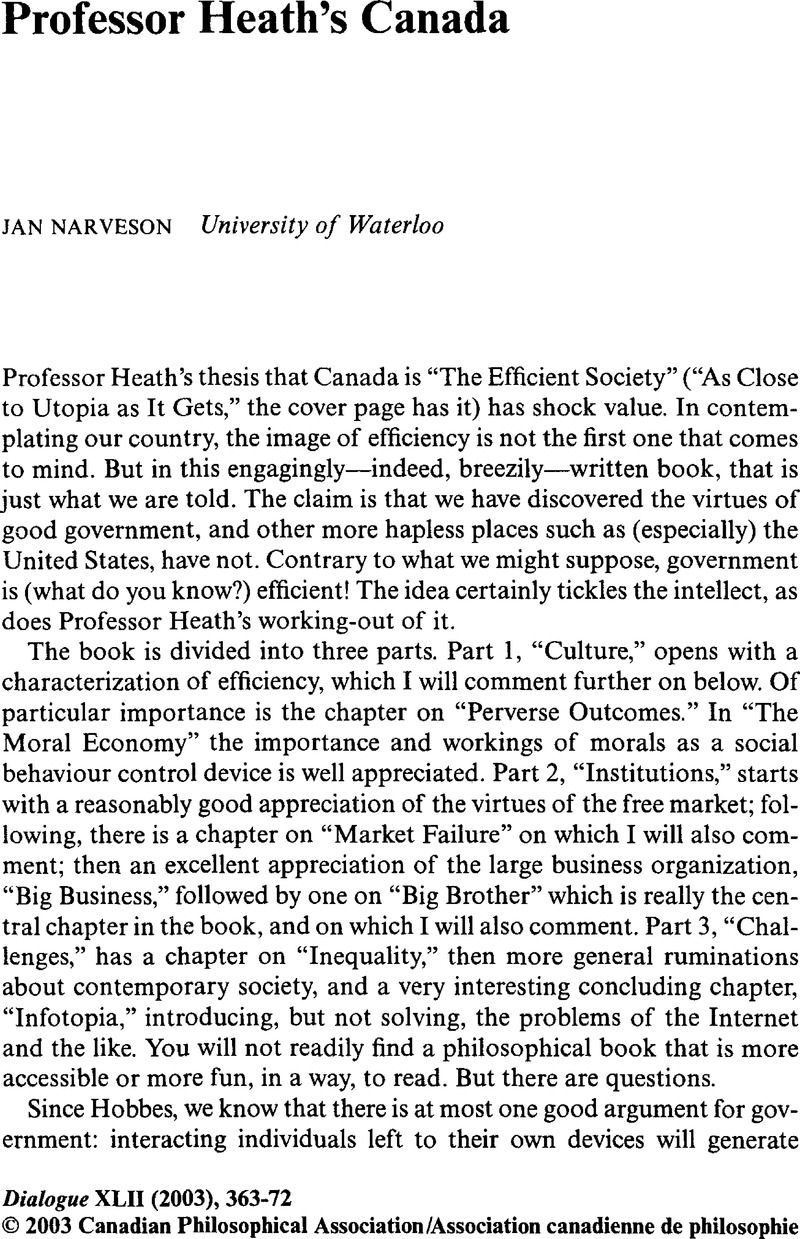No CrossRef data available.
Published online by Cambridge University Press: 13 April 2010

1 This and all further references to the volume in otherwise-unattributed brackets are to Heath, Joseph, The Efficient Society: Why Canada Is as Close to Utopia as It Gets (Toronto: Penguin, 2001).Google Scholar
2 Some readers will be aware that I was an enthusiastic utilitarian in my youth. I learned better.
3 Himmelstein, David and Woolhandler, Steffie, “Harvard Study Finds Government Health Spending in U.S. Higher than in Any Other Nation,” Health Affairs Journal, 21 (July/August 2002).Google Scholar
4 See Gratzer, David, ed., Better Medicine: Reforming Canadian Health Care (Toronto: ECW Press, 2002)Google Scholar, especially David Henderson's “Myths about U.S. Health Care” (pp. 175–96). This book was not out when Heath wrote, but the facts were readily available and widely known, though not among supporters of our health system. See also Henderson, David's The Joy of Freedom (Toronto: Pearson Education, 2002), esp. pp. 255–92Google Scholar. Henderson's book was not available when Heath wrote, to be sure; but the general situation was familiar to anyone who looked into the matter.
5 Fred McMahon and Martin Zelder, “Making Health Spending Work,” in Gratzer, ed., Better Medicine, pp. 269–86.
6 Schmidtz, David, The Limits of Government (Boulder, CO: Westview, 1991).Google Scholar
7 For example, Jasay, Anthony de, Against Politics (New York: Routledge, 1997).Google Scholar
8 Russell, Bertrand, Introduction to Mathematical Philosophy (New York: Allen andUnwin, 1919), p. 71.Google Scholar
9 See my “On Recent Arguments for Egalitarianism,” in Narveson, Jan, Respecting Persons in Theory and Practice (Lanham, MD: Rowman & Littlefield, 2002), pp. 49–62Google Scholar. For an exposition of the idea of social efficiency as being at the core of justice, see in the same book, “Justice as Pure Efficiency: Pareto Efficiency, Justice, and the Free Market—APure Efficiency Conception of Justice,” pp. 79–95.